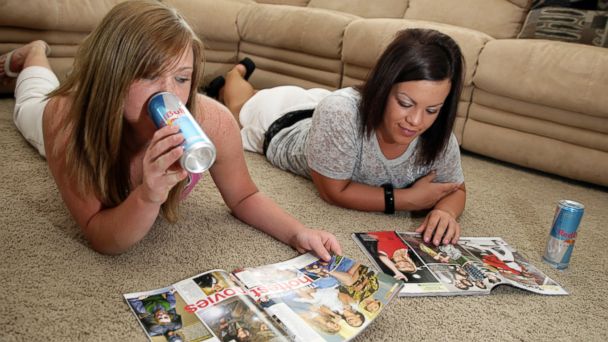Buzzed Kids Switching From Soda to Energy Drinks

Some energy drinks have four times the caffeine content of soda. (Image credit: Jack Dempsey/AP Photo)
By Austin Chiang, M.D.
Where are kids getting their caffeine fix these days? Not from soda, according to a new report - or at least not as much. Children and adolescents seem to be switching to energy drinks and sweetened coffee drinks as their caffeinated beverages of choice. The finding comes out of a study released today in the journal Pediatrics.
Researchers with the Center for Disease Control and Prevention's National Center for Health Statistics studied the caffeine intake of children, teens and young adults, paying particular attention to the sources of caffeine enjoyed from 1999 to 2010. They found that while the percentage of young people consuming caffeine on a daily basis has held steady over the past decade at approximately 73 percent, a dwindling proportion is looking to soda for that buzz.
The numbers tell the story. In 1999, 62 percent of kids and young adults named soda their primary source of caffeine. This figure plummeted to 38 percent by 2010, a level that still makes soda the largest contributor to caffeine intake, but a significant slip nonetheless.
Lead study author Amy Branum of the CDC said the study was driven by a lack of understanding as to how much caffeine kids and adolescents regularly consume these days.
"We seem to hear about the potential dangers of energy drinks, but then it occurred to us we weren't really sure how much young people were really taking in," she said, adding that she was surprised to learn that little research had been done on the subject since caffeine-dense energy drinks stormed onto the scene.
What Branum and her team discovered was that these drinks, more or less nonexistent in 1999, accounted for 6 percent of young people's caffeine intake in 2010. The proportion of caffeine that young people get from coffee, meanwhile, has more than doubled - from 10 percent in 1999 to 24 percent in 2010.
Why is this happening? Branum says this shift in preference may be a result of the growing perception of soda as being linked to obesity. But it could also be because sweetened coffee beverages and energy drinks are becoming more appealing to a younger palate. And while young people may not guzzle these beverages like they would soda, they may not have to in order to get a high dose of caffeine - some coffee and energy drinks have up to four times the caffeine of an equal amount of soda.
Bruce Goldberger, director of toxicology at the University of Florida, is not surprised that young people are consuming a greater proportion of energy drinks than before.
"Energy drink consumption by anyone should be done in moderation, especially in young people due to smaller body size," said Goldberger, who was not involved in the study. "There are isolated reports demonstrating that even small quantities of energy drinks have resulted in serious adverse effects and sometimes fatal consequences."
Diet and nutrition experts agreed that kids would do well to watch their intake of caffeine-laden drinks.
"If energy drink intake increases, caffeine could get up into toxic levels," said Dr. David Katz, director of the Yale University Prevention Research Center. "Some of these drinks can be significant sources of sugar and calories, too."
Doctor's Take
While it would seem that kids are getting less of their caffeine from soda these days, these new findings suggest that parents should nonetheless keep an eye on other sources.
Various organizations have issued warnings on kids' caffeine intake. The American Academy of Pediatrics, for example, has stated that "stimulant-containing energy drinks have no place in the diets of children and adolescents" given the lack of nutritional value. And while the U.S. Food and Drug Administration does not currently regulate caffeine content of energy drinks, since they are marketed as supplements, the agency released a statement in May 2013 acknowledging "the potential for consumption [of products with added caffeine] by young children and adolescents" and the persistent need "…to establish clear boundaries and conditions on caffeine use."
Branum said the current buzz over caffeinated drinks should serve as a call to parents to keep an eye on their kids' daily intake. "It's always important to know what your kids are eating and drinking," she said, "and to educate yourself about the differences between different caffeinated drinks - though it's easier said than done."